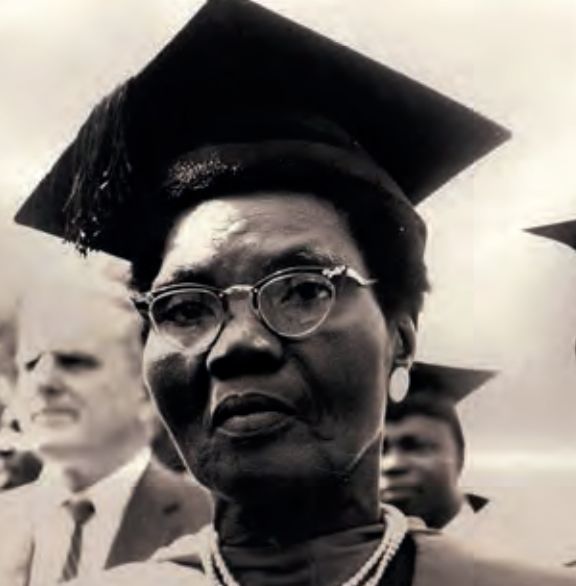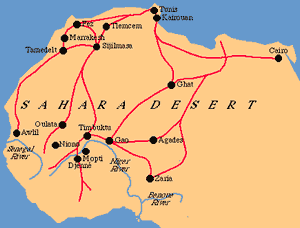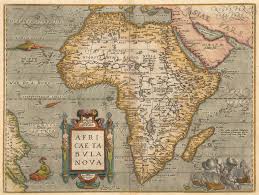Funmilayo Ransome-Kuti: The Lioness of Lisabi and Mother of Modern Nigerian Feminism

Funmilayo Ransome-Kuti: The Lioness of Lisabi and Mother of Modern Nigerian Feminism
Discover the inspiring story of Funmilayo Ransome-Kuti, the fearless Lioness of Lisabi who pioneered women's rights activism and shaped modern Nigerian feminism.
In the pantheon of African heroes, Chief Funmilayo Ransome-Kuti stands tall as one of the most formidable female voices of the 20th century. A teacher, suffragist, nationalist, and activist, her life’s journey reflected an unwavering commitment to justice, women's rights, education, and anti-colonial resistance. She is often referred to as "The Lioness of Lisabi", a title befitting her fierce courage and revolutionary impact in the face of both colonialism and patriarchy.
This blog explores the life, legacy, and revolutionary contributions of this trailblazer, weaving through her childhood, education, activism, and the enduring legacy she left behind.
Early Life and Roots
Born on October 25, 1900, in Abeokuta, present-day Ogun State in Nigeria, Funmilayo was originally named Frances Abigail Olufunmilayo Thomas. She came from a Yoruba Christian family deeply rooted in missionary teachings and education. Her father, Daniel Olumeyuwa Thomas, was a farmer and an early convert to Christianity, and her mother, Lucretia Phyllis Omoyeni Adeosolu, was a businesswoman.
Raised with a strong sense of discipline, integrity, and intellectual curiosity, young Funmilayo was enrolled at Abeokuta Grammar School, one of the earliest Western-style schools in Nigeria. She would later become the first female student to attend that institution, setting a precedent for the gender-defying life she was destined to live.
The Journey Abroad and Name Transformation
In 1919, Funmilayo traveled to England for further studies, an uncommon feat for women at the time. There, she pursued teacher training and experienced firsthand the suffragette movement and early feminist ideologies in Europe. Her time abroad radically reshaped her worldview and exposed her to issues of racial discrimination and gender inequality on a global scale.
It was during her time in England that she decided to drop her English names, Frances Abigail, in a deliberate reclamation of her African identity. She returned to Nigeria as Funmilayo Olufunmilayo, a symbolic act of cultural resistance and pride.
Marriage, Family, and Shared Ideals
Upon her return to Nigeria in the mid-1920s, she married Reverend Israel Oludotun Ransome-Kuti, an Anglican minister and educator who shared her vision of educational reform and nationalism. Their marriage was not just a romantic union but a powerful intellectual and ideological partnership.
The couple had four children, including Fela Anikulapo Kuti, the Afrobeat legend and outspoken critic of military dictatorship in Nigeria. The Ransome-Kuti household became a cradle for activism, political engagement, and artistic rebellion.
Educational Contributions and Women's Empowerment
Funmilayo began her professional journey as an educator. She taught at Abeokuta Grammar School and quickly earned a reputation for her firm but nurturing approach. However, it wasn't long before she realized that education alone would not solve the systemic inequalities plaguing women, especially those from lower socioeconomic backgrounds.
She founded the Abeokuta Ladies Club (ALC) in the 1930s, which initially began as a social club for educated women. However, by the 1940s, under her leadership, it had evolved into a full-fledged political organization that included market women, a previously marginalized group.
The club was later renamed the Abeokuta Women’s Union (AWU) and then the Nigerian Women’s Union (NWU). This mass movement became a vehicle for women's voices, demanding change in taxation policies, representation, education, and economic inclusion.
The Fight Against Colonial Taxation
One of the most iconic chapters of Funmilayo Ransome-Kuti’s life was her unyielding resistance against the exploitative colonial taxation system, particularly the unjust tax levies imposed on Egba market women by both British administrators and traditional authorities.
At a time when women were excluded from political representation yet expected to bear the financial burdens of governance, Funmilayo saw the injustice for what it was: a violation of both economic fairness and human dignity.
Through the Abeokuta Women’s Union (AWU), a mass movement she helped organize and lead, she mobilized over 20,000 women, mostly traders and market women, who had been targeted with excessive taxation. She conducted economic literacy workshops, helped the women understand how taxation worked, and trained them in nonviolent resistance techniques.
They employed a combination of:
- Peaceful demonstrations and mass marches
- Boycotts of colonial markets
- Sit-ins at government buildings and the Alake’s palace
- Public naming and shaming of oppressive officials
In a powerful symbolic act, the women even stripped themselves naked in front of the Alake of Egbaland, an act considered a grave curse in Yoruba tradition, to show their spiritual protest.
This movement wasn’t just against taxation. It was a broader cry for:
- Economic justice
- Civic representation
- An end to gendered oppression in governance
Eventually, their efforts forced the Alake to abdicate his throne temporarily in 1949, an extraordinary result rarely seen in colonial or traditional history. This victory demonstrated the power of grassroots female-led activism and placed Funmilayo at the center of national attention as a fearless defender of the oppressed.
Her Title: The Lioness of Lisabi
After the success of the tax revolt, Funmilayo Ransome-Kuti was honored with the legendary title “The Lioness of Lisabi” by her peers and supporters. This wasn’t a casual nickname; it was a culturally loaded title rooted in Yoruba oral tradition.
Lisabi, in Egba history, was a revered military hero and freedom fighter who led his people to liberation centuries earlier. To call Funmilayo the “Lioness of Lisabi” meant that she was not just a leader, but a spiritual successor to one of Egba's most venerated warriors.
This title recognized her:
- Fearlessness in confronting both colonial rulers and traditional patriarchs
- Strategic brilliance in organizing grassroots movements
- Ability to inspire women to reclaim their power
Even more symbolically, lions (and lionesses) in Yoruba symbolism are seen as royal, protective, and unyielding in the face of injustice. By embodying these traits, Funmilayo became more than a political leader; she became a living symbol of collective defiance and dignity.
Her enemies feared her. The British labeled her “dangerous.” But to the women of Abeokuta and the oppressed across Nigeria, she was their Lisabi in feminine form, their unshakeable hope in a time of corruption and colonial subjugation.
International Engagement and Political Recognition
Funmilayo Ransome-Kuti's influence was not confined to Nigerian soil. She traveled extensively, attending international conferences and engaging with global liberation movements. She visited China, Russia, Ghana, England, and the United States, building alliances with civil rights leaders and pan-Africanists.
She was also a founding member of the National Council of Nigeria and the Cameroons (NCNC), alongside political heavyweights like Nnamdi Azikiwe. In the 1950s, she became the first Nigerian woman to run for elected office, blazing a trail for women in politics.
Despite pushback and often being sidelined in male-dominated spaces, Funmilayo never allowed the patriarchy to dictate her role in Nigeria’s nation-building.
Relationship with Colonial Authorities and Accusations of Communism
Her left-leaning ideologies, anti-imperialist stance, and alliances with countries like the Soviet Union and China earned her the suspicion of colonial powers. At one point, the British government withheld her international travel passport and accused her of being a Communist sympathizer.
But these attacks only strengthened her resolve. She publicly declared that she was not a Communist but also not ashamed to learn from any society that promoted fairness and equality for its citizens.
The Tragic End and Her Son's Activism
Despite her extraordinary life of activism, education, and political engagement, Funmilayo Ransome-Kuti’s final days were tragically shaped by the very system she had fought against all her life, political oppression and state-sponsored violence.
In 1977, Nigerian soldiers attacked the Kalakuta Republic, the Lagos residence and commune of her son, Fela Kuti, the globally renowned Afrobeat pioneer and a sharp critic of the Nigerian military regime. The Kalakuta Republic was more than just a home; it was a cultural and political symbol of resistance, housing artists, dissidents, and members of Fela's band.
During the brutal military invasion, Funmilayo Ransome-Kuti, by then an elderly woman in her late 70s, was thrown from a second-story window by soldiers. The attack left her severely injured, and she never fully recovered. She died on April 13, 1978, from complications related to those injuries.
Her death sent shockwaves across the country and the international human rights community. It revealed just how far the Nigerian state was willing to go to silence dissent, even if it meant harming a woman who had fought for Nigeria’s liberation, democracy, and dignity decades earlier.
At her funeral, thousands gathered in Abeokuta to mourn not just a mother and activist, but a national conscience who had paid the ultimate price for standing on the side of justice.
Fela Anikulapo Kuti, her son, would carry her spirit of defiance and social justice into a new realm: music.
Fela’s Afrobeat wasn’t just art, it was rebellion. He used his music to criticize military corruption, economic inequality, and the legacy of colonialism. Many of his songs echoed the same principles Funmilayo stood for: accountability, resistance, and truth-telling.
His mother was a central inspiration in his life and ideology. Her courage shaped his political consciousness, and her values were evident in his unrelenting activism. After her death, Fela publicly denounced the Nigerian government and even delivered her coffin to the gates of a military barracks, a provocative act meant to symbolize the guilt and shame of the regime.
Fela’s Kalakuta Republic was modeled after the kind of self-determined community Funmilayo believed in, one that rejected colonial norms and military dominance.
Even today, when people speak of Fela's boldness, they often trace it back to the fire lit by his mother, a woman who not only birthed a legend but shaped a lineage of resistance in Nigerian history.
Her Legacy in Women’s Rights and Democracy
Funmilayo Ransome-Kuti’s life is a testament to the power of sustained activism and collective resistance. Her courage laid the foundation for Nigeria’s women's rights movement. Today, her legacy lives on through institutions, awards, and educational centers named after her, as well as the continued activism of her descendants.
She taught generations that women's voices matter, not as whispers behind closed doors, but as thunderclaps that can shake thrones.
Funmilayo’s Relationship with Europeans and the English Naming Legacy
An interesting aspect of Funmilayo's heritage, and a broader commentary on Nigeria’s colonial past, is her interaction with Europeans and missionaries. Her family’s early conversion to Christianity and embrace of Western education led to the adoption of English-style names like Frances and Ransome-Kuti (the latter being a compound of her husband’s family name with European missionary influences).
Despite shedding her English first names later in life, she retained the surname Ransome-Kuti, which had become symbolic of her activism and family identity. Her fluency in English, familiarity with Western political systems, and international travels allowed her to strategically use colonial tools to challenge colonialism itself, a masterstroke of turning the master’s tools against the master’s house.
This duality, being deeply African yet cosmopolitan, helped her form alliances abroad while never compromising her cultural and political identity at home.
Funmilayo Ransome-Kuti’s story is not just a Nigerian story; it is an African story, a feminist story, and a human story. In a world still grappling with gender inequality, political repression, and the erasure of women's roles in history, she remains an icon of resistance.
Her life is a blueprint for every generation: to rise, to resist, and to reshape society, not with permission, but with purpose.


